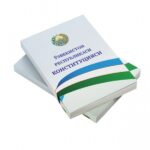Training of highly skilled specialists who are capable of conducting consistent scientific and analytical researches in the field of religious studies and exploring rich cultural and spiritual heritage, religious sources and monuments, is a demand of contemporary life. Such specialists should have the skills necessary to translate and interpret religious terms precisely into other languages .
If religious texts are tough, we can refer to different dictionaries in order to translate them. However, it should be noted that dictionaries can not always help to understand the language of religion. Because in the study of hundreds of manuscripts, unexplained aspects and meanings of new terms are manifested, and the true meaning of these words is difficult to find in the dictionaries, and those which exist are usually one-sided. As an example, we can explore how some Islamic words are expressed in Russian. For example, балоғат илми — риторика (rhetoric); ҳаё, ибо — стыдливость (pudency); ҳалол — дозволенное (permitted); ҳаром — запретное (forbidden); тақво — богобоязненность (fear of God); мискин–фақир — бедняк (down-and-outer); мўъмин — верующий (believer); мунофиқ — лицемер (hypocrite) and others.
It would be a mistake to refuse the existing dictionaries for not finding the meaning of one or two words, but revising and reprinting them with new words, commentaries and applications would be of great help. Based on the old saying which says “Without building a new house, do not destroy the old one” one can derive a logical conclusion of keeping the old dictionaries and revising them as much as possible. It is worth mentioning that Utkir Hoshimov, a well-known Uzbek writer, said: “In short, there is a lot to talk about “ инсоф (conscientiousness)”. “For example, Russian language is one of the richest languages in the world. It has meaningful words such as “честность”, “порядочность”, “великодушие”, “долг”, “совесть”. But I think they do not mean exactly the word “инсоф (conscientiousness)” Maybe I’m mistaken, but as far as I know… “
Some experts claim that the term “language of religion” can not be considered as a distinctive feature among the language styles, but some are interested in the peculiarities of its interpretation, as the Western and Eastern scholars have pointed the interpretation of this language and its peculiarities. We will focus on some of the key points.
Mel Thompson, in his book of Religious Philosophy, commented on a great deal of work on language problems in philosophy in the twentieth century, suggesting that scientists, such as Ludwig Wittgenstein and A.J.Ayer, contrasted the language of religion with other language styles. According to him, any annotation or word that is derived separately can not describe the language of religion if it is not a part of a religious text. However, there are certain words that are religious in nature, apart from the text itself. For example, God, Prophet, angel, prayer, Quran, zakat (payment made annually under Islamic law on certain kinds of property and used for charitable and religious purposes, one of the Five Pillars of Islam.) and so on. Now, in explaining God as Creator, the Prophet — the messenger, the Quran — the Scripture, and the zakat — садақа (милостыня), we use words that are not directly part of the language of religion. It is clear from this that even the simple words in the religious texts can also be used to express the meaning of such kind of texts. Hence, the language of religion can consist of both religious and nonreligious words. They serve to convey and express the essence of the religious text entirely. Thompson argues that literary texts and manuscripts, as well as literary texts about people’s religious convictions and experiences, can not be translated word for word as it ruins the true meaning of religion. In such cases, philosophers have recommended to interpret the language of religion in the spirit of that religion, that it is expedient to disclose the meaning of the text in terms of using non-religious words. Only then the obstacles that hindered the understanding of the true essence of that religion for those who have no religious knowledge but are interested in religion, in its sacred books, or monuments are removed. Many famous oriental scientists while commenting on the interpretation of the Quran verses in Uzbek translations claim that religious texts, including the Quran, do not reveal their secrets at first reading. Religious and philosophical truth can be drawn on the basis of rereading it again and deeply studying the meanings of each phrase. The translation is of great importance, and it tries to expound the essence of the text to those who do not speak Arabic. Each of the phrase in Quran is based on complex religious and historical, philological and philosophical concepts. The linguistic translation of each phrase is a mysterious world that can not be understood without religious or scientific commentary.
We consider that revealing the secrets of this mysterious world depends on accurate and clear interpretation of religious texts. Thus, the translation of the meanings of the Quran al-karim must always contain tafsir (illumination of the external meaning of the Quran) and tafhim (is derived from the Arabic word “fahm” which means “understanding”. It is more than a traditional commentary on the scripture as it contains discussions and debates regarding economics, sociology, history, and politics.)
In summary, the accurate and explicit interpretation of religious terms helps to establish effective dialogue between world religions, as well as to assist religion to find its place in the society.
U.Hoshimov Инсоф – «Тошкент оқшоми» Conscientiousness “Tashkent Akhshomi” newspaper, N2, 142, December 2, 2002.
M.Tompson “Язык религии (Language of Religion)”. Moscow. 2001, page 64.
Umida HAFIZOVA,
Lecturer of Tashkent Islamic Institute






